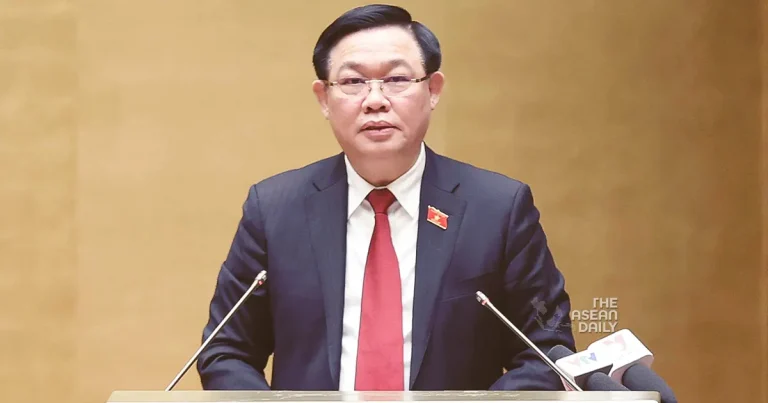26-4-2024 (HANOI) Vuong Dinh Hue, the chairman of Vietnam’s Parliament, has stepped down from his position due to reported “violations and shortcomings,” according to the government’s announcement on April 26. This latest development adds to the political turbulence in Vietnam, coming just weeks after the high-profile dismissal of the country’s president.
As one of the four key figures in Vietnam’s leadership, Mr. Hue holds a significant role in the country’s governance, despite Vietnam officially not having a paramount ruler. The 67-year-old Hue had been considered a potential candidate for the position of Communist Party secretary, the most powerful role in Vietnam.
The government’s website released a statement from the Communist Party’s central committee, stating that Vuong Dinh Hue’s actions had generated negative public opinion, tarnishing the reputation of the party, the state, and himself personally. His resignation has been accepted, and he will be relieved of his duties within the central committee and the influential Politburo. The specific nature of his violations was not disclosed.
Earlier on April 26, Mr. Hue had been seen attending a ceremony alongside the prime minister, in preparation for the upcoming 49th anniversary of the end of the Vietnam War and the reunification of North and South Vietnam under communist rule.
The resignation of a key figure in Vietnam’s top leadership raises concerns about the country’s political stability, particularly as Vietnam heavily relies on foreign investment and international trade as a thriving manufacturing hub in Southeast Asia.
This departure follows the dismissal of President Vo Van Thuong in March, who was removed from office by the Communist Party for violating party regulations. Thuong’s removal marked the second time a president has been ousted in just over a year, leading many observers to express concerns about prolonged internal conflicts negatively impacting Vietnam’s attractiveness as an investment destination.
In a survey conducted by foreign chambers of commerce in Vietnam and published in March, over 650 business leaders revealed that political stability was a key factor attracting foreign companies to invest in the country.
Vietnam has been pursuing an extensive anti-corruption campaign known as the “blazing furnace” for several years, resulting in the prosecution and removal of numerous senior state officials and high-profile business executives.
During his visit to China in early April, Vuong Dinh Hue met with Chinese President Xi Jinping. Meanwhile, rumors circulated in Vietnam that Mr. Hue’s assistant had been arrested for alleged bribery involving an infrastructure company. The arrest was officially announced by the police two weeks after the rumors surfaced.
In a separate case in April, real estate tycoon Truong My Lan was sentenced to death for her involvement in a long-standing multibillion-dollar financial fraud, which had gone unchecked for years with several high-ranking officials turning a blind eye.




